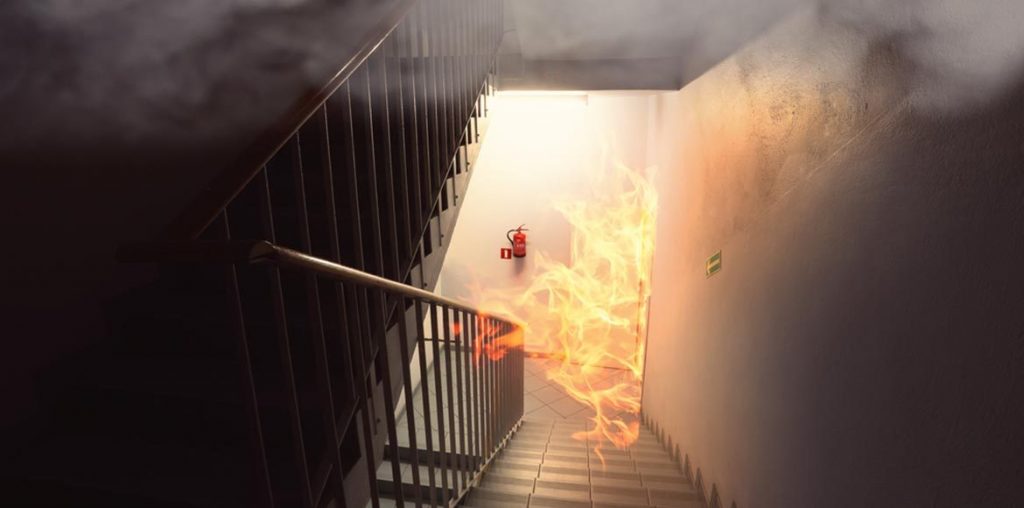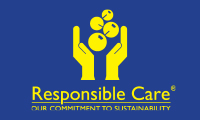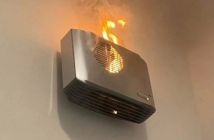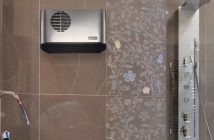This is what work should be undertaken during the COVID-19 level four restrictions according to a Position Statement issued by the Fire Protection Association New Zealand with consultation with the Ministry of Business and Employment

The extraordinary COVID-19 restrictions currently in place are all aimed at preventing the loss of lives through the reduction of person-toperson disease transmission (either directly or via contaminated surfaces).
FPANZ members should take all reasonable steps to minimise the health risk to their staff, themselves, their families, and the public. This should include the cessation of all non-essential public activity, working from home, self-isolation, increased hygiene, and physical distancing.
Steps should also be taken to minimise the risk of COVID-19 spread from or to client or member premises.
The official permissions granted to the building sector, and its associated supply and support chain, are limited to activities “required immediately” to “maintain human health and safety”, to “avoid serious environmental harm”, or to “ensure the continuation or prevent the failure of an essential service”.
From the MBIE website definitions: “The situation is often changing, so you may not be clear on whether your business is essential. Some businesses will be deemed essential for a short period of time while supporting other essential businesses or while carrying out an essential service”.
A fire or sprinkler company is an essential business (delivering an essential service) during the time it is conducting an essential service, such as responding to defects or alarms, or undertaking time-critical maintenance or repair of systems in critical or occupied buildings. Outside of those times, it is not considered an essential business. There is no blanket designation. Each and every situation and activity must be assessed on its merits.
All members are reminded of their undertaking to follow FPANZ Code of Ethical Conduct. In the context of the current situation the following aspects are particularly relevant: Compliance, Responsibility to the Community, Health and Safety, Responsibility to the Industry and Association, and Integrity.
The public has a low tolerance of activities considered “non-essential”. MBIE has set up a dedicated website for reporting breaches of the restrictions. Members should make every effort not only to fully comply with the Alert Level 4 restrictions, but also not to be seen to be “pushing the boundaries” with activities that are not really essential. Our collective professional reputation is at stake.
Essential Businesses and Services
The official definitions of “essential businesses” and “essential services” are constantly changing.
The latest definitions can be found at: https://covid19.govt.nz/government-actions/covid19-alert-level/essential-businesses/
From that website:
❱ “To help you identify work that meets the essential business definition, ask yourself the following questions:
1) Is the work required immediately to ensure the continuation of an essential service, or prevent the failure of an essential service or,
2) Is the work required immediately to ensure health, safety and wellbeing of people, or avoid significant environmental harm?
3) Is the work you are performing the bare minimum required to meet the criteria above?
❱ If you answered yes to these questions, your work may be considered essential, however it is important to assess your specific situation and satisfy yourself that the criteria in the Government definition of essential business has been met.”
And helpfully, under “examples of essential vs non-essential work”:
The FPANZ position is that unless it is obvious (for example hospital, supermarket, occupied hotel, care facility, court, bank, critical infrastructure) the onus is on your client to demonstrate to you that they are providing an essential service – either directly, or as part of the supply and support chain for an essential business. You should ask for objective evidence in support of this if you have any cause for doubt.
There is a documented process for contacting MBIE to seek clarification on whether or not any particular operation is providing an essential service. The email address for this is [email protected]
Again, from MBIE: “Non-urgent work must wait. If your work is not essential or you’re unsure if it’s essential, you should defer the work to when the COVID-19 restrictions are lifted.”
Managing Infection Risk on Customer Sites
Fire industry contractors should contact each client site owner representative to discuss the infection risk posed by essential on-site activities to both the tester and the building occupants versus the risk to the system not functioning. Together they should establish safe and appropriate procedures which address these risks to an acceptable level.
Some panels and pumps, for instance, can be accessed from outside or without the need for the tester to enter occupied areas, whereas in other buildings the tester may need to enter occupied and even clinical areas.
Fire Alarm and Sprinkler System Maintenance
MBIE has advised that it is permissible to perform “some repair and minimal maintenance” to keep specified systems operational in occupied buildings and buildings that “enable the continued operation of essential services and critical infrastructure”. Buildings in these categories that are not defect monitored may be “checked” at “minimum frequency necessary”.
FPANZ has received feedback from some critical facilities that their testing regime is not to be curtailed during the Level 4 restrictions. Specific examples include DHBs who require that their diesel driven fire pumps are tested weekly, as against the implied monthly testing of earlier MBIE advice. FPANZ agrees that such routine testing in critical and essential facilities should continue unabated.
FPANZ does not consider that this should apply to all essential businesses, because not all essential facilities are critical. Examples of essential, but not critical, facilities would include supermarkets, given that in much of New Zealand the public will typically have access to a range of supermarket options.
In FPANZ’s opinion, examples of critical facilities would include hospitals, infrastructure (e.g. telephone exchanges, data centres, water treatment plants, power stations, oil & gas installations), facilities where liberties are restricted (both care and detention), and emergency services premises (this is not an exhaustive list).
In an earlier update, MBIE further advised that for some buildings, the ability for a BWoF to be issued will be impacted due to the Level 4 alert. They advised that further information about managing affected buildings would be provided at a later date. MBIE has clarified that the matter is “under technical review” but “nothing has actually changed.”
Members should not take any of this as permission to undertake non-essential maintenance, nor should members ask Territorial Authorities or FENZ for dispensations from regulatory requirements – they have no legal power to grant them.
Weekly/Monthly Testing
In light of the MBIE advice above, routine testing should be suspended temporarily in unoccupied and non-essential buildings. In essential but noncritical buildings this testing should be delayed and simplified to the level and frequency you consider, in your professional judgement, based on the system’s prior history, to be the minimum reasonably necessary to maintain continued operation. Testing in critical buildings (as per the section above) may be conducted at normal intervals, but possibly adapted to reduce infection risk. Members should be aware that they may be called upon to publicly justify any judgements made.
Annual/Biennial Surveys
In light of the MBIE advice above, annual and biennial surveys should be suspended temporarily in all buildings. Such surveys are a high-infection-risk activity because they require all areas of the premises to be accessed.
Alarm and Sprinkler System Activations and Defects
The underlying principle is that tradespeople are only permitted to undertake emergency work where the need is immediate and required to maintain human health and safety or avoid serious environmental harm. MBIE has clarified that responding to alarm or defect notifications from fire alarm or sprinkler systems in occupied buildings, essential services buildings, and critical infrastructure are all considered to be essential service. Furthermore, MBIE has stated that essential service also includes a member responding to a request from Fire and Emergency New Zealand for an emergency call out to any building (this may include unoccupied buildings).
Building Construction Sites
A very small number of construction sites have been formally designated by Government agencies as essential or critical, and members may work on these sites. All other construction sites should be closed.
Fire Alarm and Sprinkler System Commissioning Inspections
On-site commissioning inspections should be temporarily suspended except for the very small number of construction sites formally designated by Government agencies as essential or critical.
Maintenance of Evacuation Schemes and Fire Safety Training
Carrying out fire evacuation drills and face-to-face training are considered high-infection-risk activities and should be temporarily suspended. Training delivery online or via video conference may be considered in consultation with your client.
Hand-operated Firefighting Equipment (HOFFE)
Maintenance and Service HOFFE maintenance and service work should be limited to the recharge, replacement, and repair of equipment to support essential businesses and critical infrastructure only. For other situations it should be temporarily suspended unless there is an immediate risk to human health or safety.
Routine Inspections of Fire Extinguishers and Other HOFFE
Routine HOFFE inspections should be temporarily suspended in all situations. This is a high-infection-risk activity because it requires large areas of the premises to be accessed.
Inspections for Passive Fire Protection, Means of Escape, Emergency Signage
Routine inspections should be temporarily suspended in all situations. Such inspections are a high-infection-risk activity because they require all areas of the premises to be accessed. Essential work may be undertaken to support an essential business, or where there is a known and immediate life safety risk (e.g. a jammed fire door in an egress route of an occupied building).
Fire Product Manufacturing and Supply
Advice from MBIE is that fire products are part of the supply chain for essential businesses, so manufacture and supply may continue to the extent necessary to supply critical products and services to essential businesses only.
Communication with Clients
Members should communicate proactively with their clients so that they are fully informed about the implications of the above restrictions for both their premises and their Health and Safety responsibilities.




